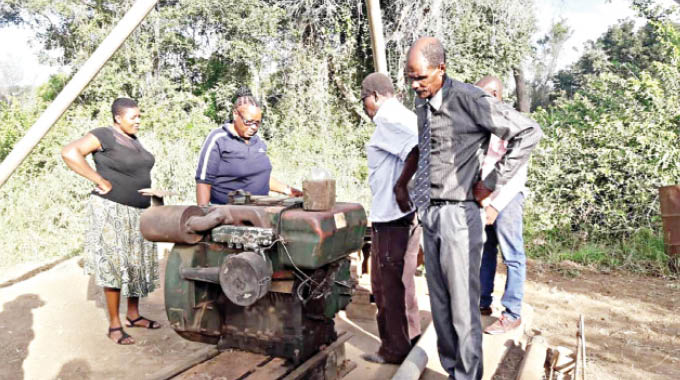
Thupeyo Muleya, Beitbridge Bureau
GOVERNMENT and its partners have started rehabilitating Tshikwalakwala Irrigation Scheme in Beitbridge East constituency, some 135km out of the border town.
Some farmers reportedly started pulling out of the project after failing to repair four irrigation pumps and fence which were destroyed by floods in 2013/14 rainy season.
In addition, the appalling situation at the project had worsened food insecurity in the district where 10 220 households have been placed under Government’s drought relief programme.
The Government-owned irrigation scheme which was initiated in 1965 and used to be the agricultural backbone for Beitbridge, has become a pale shadow of its former self.
In an interview last week, Beitbridge Rural District Council’s chief executive officer, Mr Peter Moyo said work on the main pipeline which supplies the project with water from the Limpopo River was underway.
He said a technical team had also been sent on the ground to assess the situation and draft the immediate needs and a works programme.
“We are working together with several partners to rehabilitate the Tshikwalakwala Irrigation Scheme,” said Mr Moyo.
“Civil works on the construction of a pipeline to supply the project with water is in progress.
“Additionally, we have a technical team on the ground busy assessing the issues and what needs to be done in the interim. We expect full scale works to start as soon as we complete the work plan and the needs assessment”.
The official said irrigation farming was one of the major economic drivers and a source of livelihoods for most people around the district.
He said they were also engaging a number of players to help revive defunct irrigation projects most of which are experiencing water shortages.
The irrigation scheme’s management committee chairman Mr John Kibi Muleya said in a recent interview that they used to operate with four diesel-powered pumps and five boreholes.
“The situation here is a cause for concern considering that we are in natural region five where crop husbandry depends mostly on irrigation.
“As villagers, we have tried to put resources together but that is not enough to take us off the ground. As you can see, 65 hectares have turned into a thick bush,” he said.
Mr Muleya said most of the 135 plot-holders had pulled out due to frustration.
He said though many players including Government had tried to revive the irrigation scheme, all efforts have failed.
“After the floods, we tried to reduce the tillage land to 20 hectares but still, our efforts are hitting a brick wall due to chronic water shortages,” he said.
The official appealed to Government and other development partners to install solar-powered engines at the project.
He said the area was not electrified and the diesel pumps were cost-intensive.
